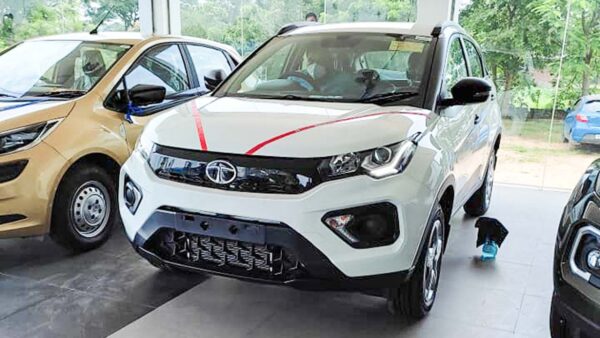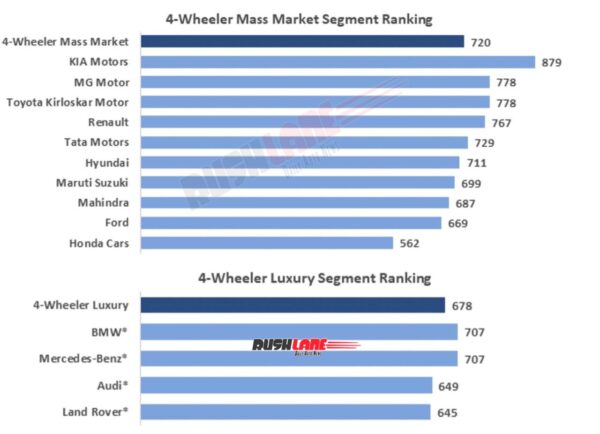
The rankings are based on an index score derived statistically based on the ratings provided by responding dealers
Auto dealerships often have had a love-hate relationship with auto manufacturing brands. We often hear about animosity cropping up between a dealership or a group of dealerships due to certain issues which end up hurting customer experience.
Taking cognizance of this matter, Federation of Automobile Dealers Associations (FADA) issued the results of the Dealer Satisfaction Survey Report. The survey was conducted in association with PremonAsia, a consumer-insight led consulting and advisory firm based out of Singapore.
Dealer Satisfaction Study 2021 – Overall conclusion from survey
The study was initiated to examine the health of the relationship between Auto Dealers and their OEMs. The report highlights expectations of dealers from their respective OEMs and causes of concern that affect business. Such issues of concern include dealership viability, support on sales and after-sales, openness to dealer inputs in decision making and more.
Dealer Satisfaction Study 2021 suggests that dealers attach high importance of 27 percent on Business Viability, making it a highly critical aspect where OEMs need to exhibit greater sensitivity, particularly since the current satisfaction level on this factor is weak. Result of the survey has been categorised into respective segments including 4-wheeler mass-market, 4-wheeler luxury, two-wheeler, commercial vehicle and three-wheelers. In this specific article, we concentrate on four-wheeler segments- mass market and luxury, only.

Mass-market 4-wheeler segment
The mass-market passenger vehicle segment scored the highest dealer satisfaction index of 720 breaching the average industry index of 657 on a scale of 1000. This indicates that dealerships in the mass-market PV segment are generally the most satisfied in the overall industry.
Dealers confirmed that OEMs provide adequate training for frontline sales and service staff thus keeping the end customer satisfied. At the same time, they also raised a few concerns about OEMs not being receptive to their inputs for keeping a viable and long-term policy in mind. Kia Motors scored the highest dealer satisfaction index of 879 which indicates that the Korean brand has been able to fulfill most of the expectations from its dealer partners.
Not only are Kia’s dealers satisfied with most of the hygiene needs, but they are also truly delighted with the product and their business viability. The company was jointly followed by MG Motor and Toyota with 778 points out of 1000. Renault was 4th, while Tata, Hyundai and Maruti took the 5th, 6th, and 7th spots respectively. Mahindra, Ford and Honda were in bottom 3. Honda showed the poorest results with a dismal index of 562.
Luxury 4-wheeler segment
In the luxury PV segment, dealer satisfaction index scores read 678 out of 1000. The study concluded that training cost-sharing arrangement by the OEMs was unsatisfactory. Additionally, in many cases, OEMs were unable to fulfill vehicle orders in correct specifications and quantity. They also complained about the non-flexibility of a manufacturer to choose workshop equipment.
However, dealerships spoke in favour of extended warranty policies and customer handling processes offered by luxury OEMs. In this category, German luxury brands BMW and Mercedes Benz were joint highest scorers with a dealer satisfaction index of 707. They were followed by Audi and Land Rover with dealer satisfaction index of 649 and 645 points respectively.

